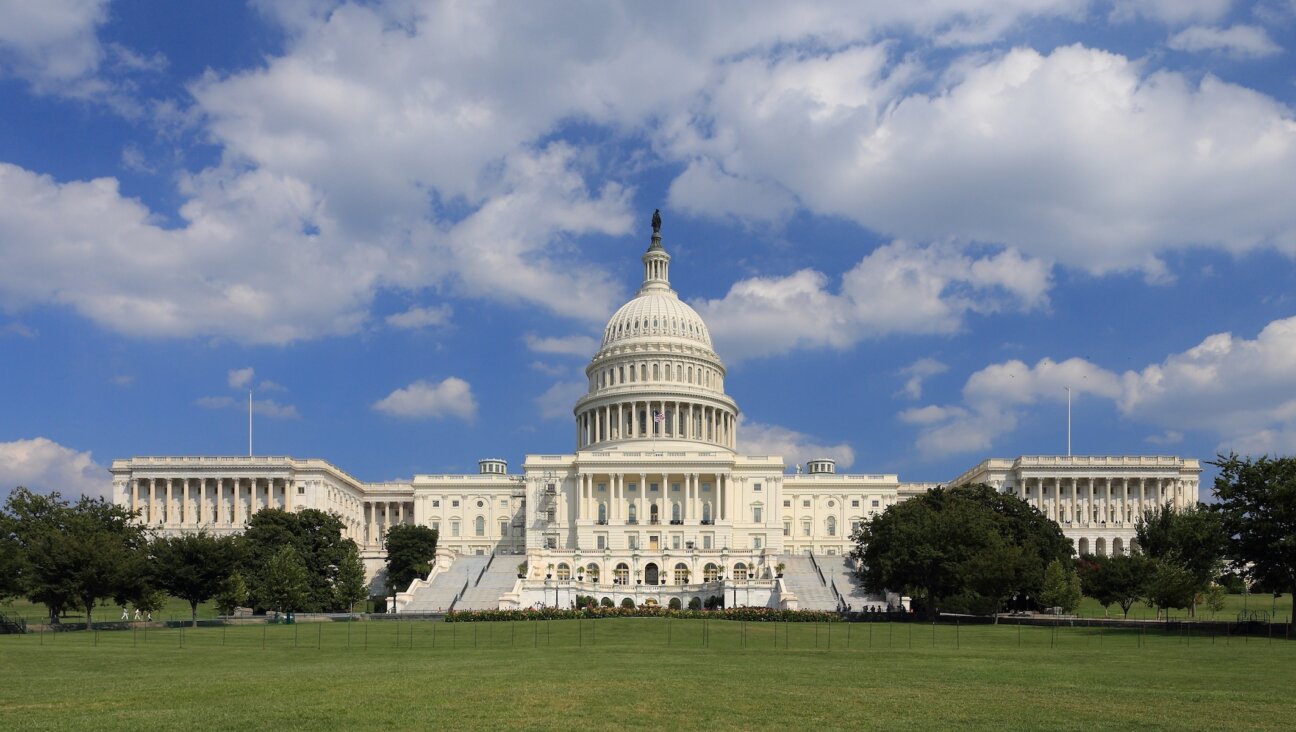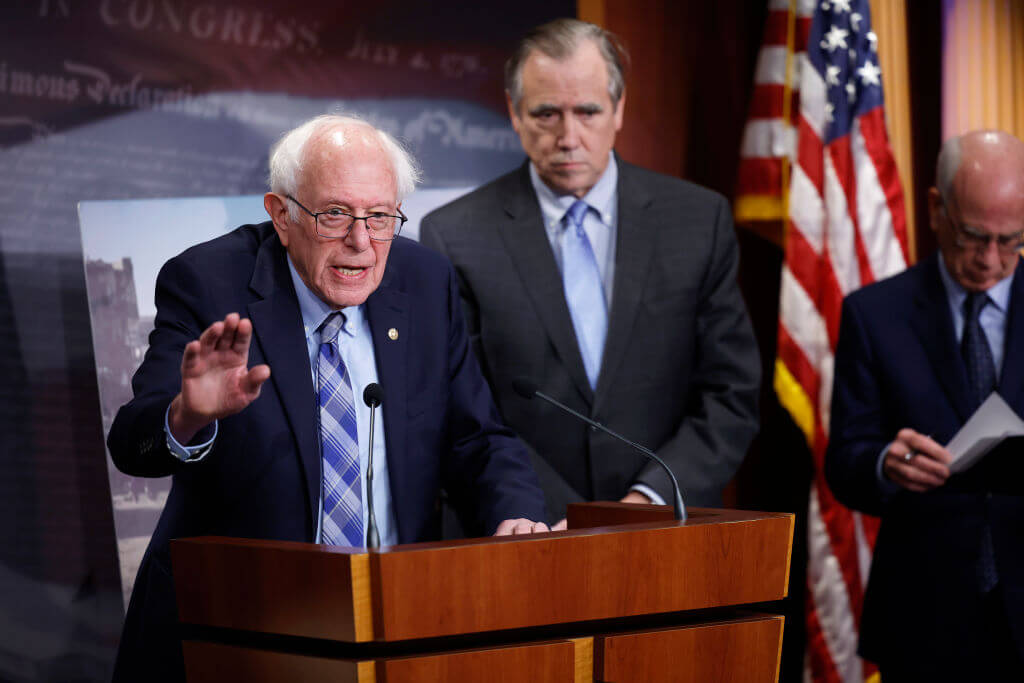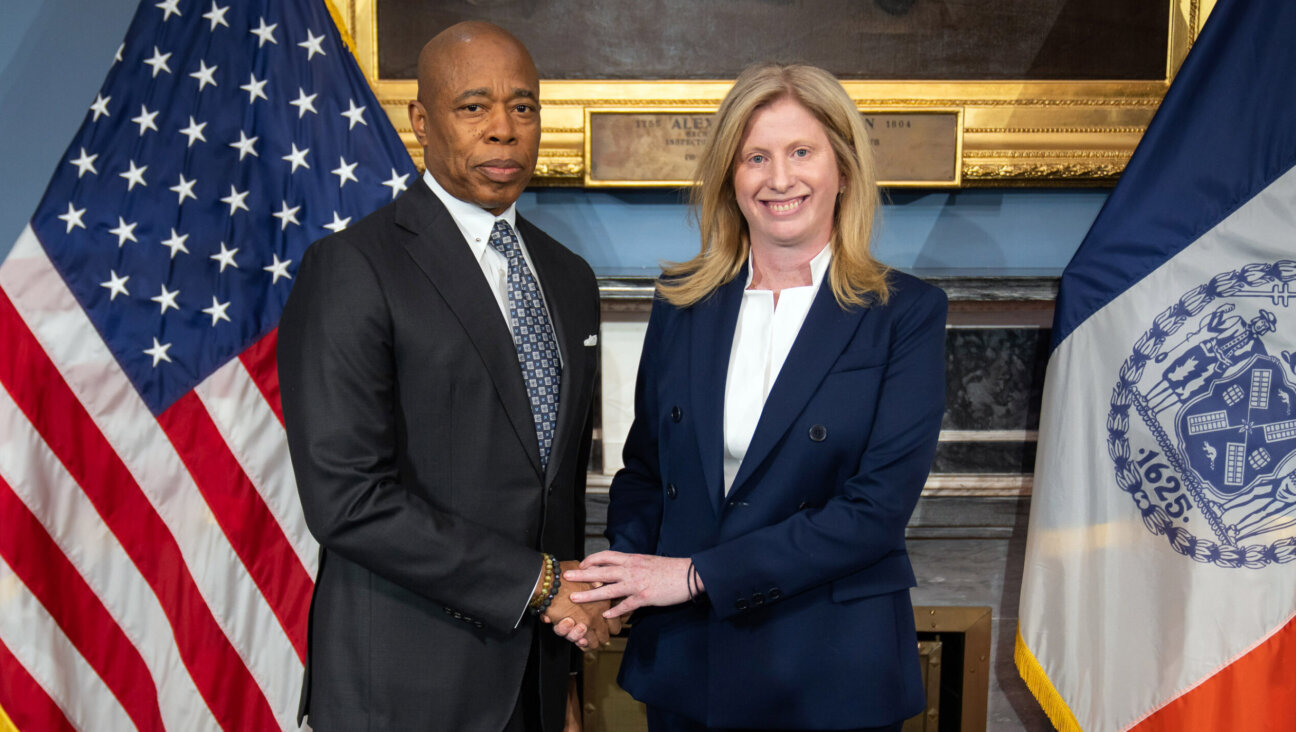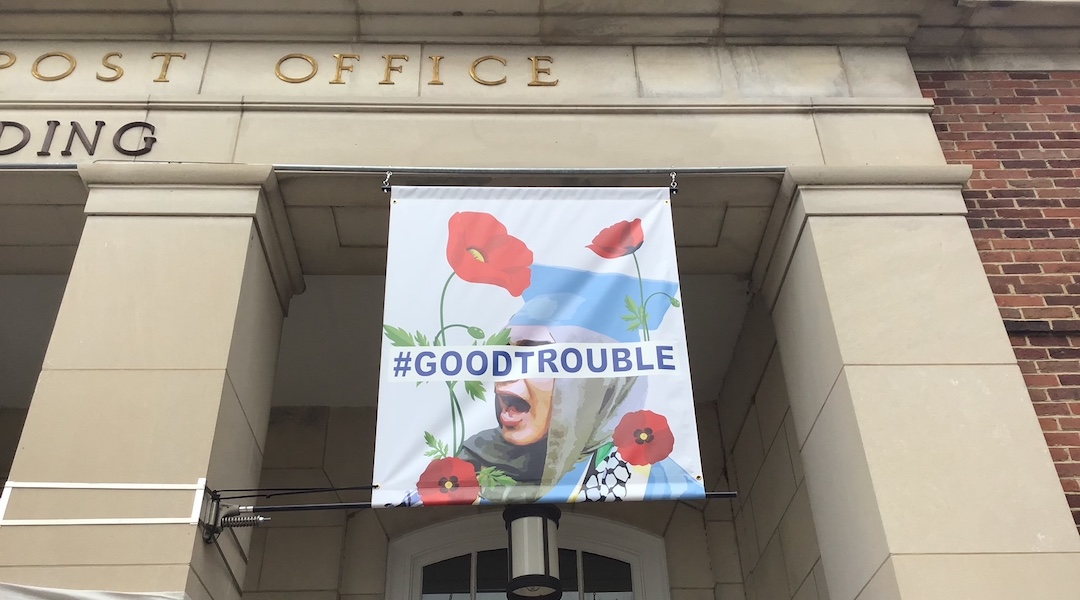How Trump Spurred Muslims And Jews To Eat Together — And Build Bridges

Image by Getty Images
On the February night that President Trump unveiled his travel ban on immigrants from Muslim countries, Samir Malik, a 31-year-old tech developer whose parents are from Pakistan, was on his way to dinner in Brooklyn.
Text messages buzzed on his phone. Activist friends of his were on the way to JFK airport to protest. He worried, would his friends and family be affected?
Malik found comfort in the Orthodox Jewish family of six that had invited him to dinner.
“How are you feeling? Do you feel cared for?” his Jewish host asked Malik and his wife, also Muslim, with roots in India.
The gesture was encouraging. The dinner was part of an initiative to bring together Muslims and Jews for small home-cooked meals through New York City. There have been two rounds of these interfaith dinners since February, each drawing around 100 participants.

Lonnie Firestone
“The idea is for people who don’t interact as much to have an opportunity to get to know each other,” said Lonnie Firestone, a Modern Orthodox Jew and freelance writer from Brooklyn who is spearheading the effort.
The genesis of this project for Firestone was the election of Donald Trump, which shocked many liberals. On the heels of a divisive and polarizing campaign season, Firestone wanted to organize something that would bring people together.
“Trump’s campaign had fostered an inhospitable environment toward Muslims and to a lesser but still notable degree toward Jews, I felt that Jewish and Muslim Americans should become better advocates for one other,” Firestone said.
Interfaith work like this, of course, is not new. But bringing Jews into Muslim home, and Muslims in Jewish homes for home-cooked meals, felt both urgent and untested to Firestone.
The dinners are organized alongside a string of New York organizations, both Jewish and Muslim. Participants have come from Brooklyn’s Congregation Beth Elohim; the progressive “GetOrganizedBK” group; the Altshul minyan, an egalitarian Brooklyn minyan also in Brooklyn; the Prospect Heights Shul ; the Muslim-Jewish Solidarity Committee; the Islamic Center at NYU and a group called Muslim Urban Professionals.
The first round of dinners, where Malik was comforted by the Jewish family, was a success. Around 100 people participated in around 20 dinners in Manhattan and Brooklyn. Malik was so moved by his experience that he offered to help Firestone with future planning.
The dinners have attracted some higher profile figures, including Brooklyn city council member Brad Lander, who hosted dinner at his South Slope home on May 5. He served salmon and strawberry and almond salad to his guests, who included a Muslim couple and two staffers from his team, one Muslim and a Jew.
“There are ways that Jew and Muslims can be pitted against each other,” Lander said. Lander has become a central organizing figure in Brooklyn’s Jewish liberal heartland. Dinner topics varied widely, Lander said. “It was an opportunity for us to ask basic questions about faith traditions — like talk about the difference between Sunnis and Shias or why Jews light the Sabbath candles and say the kiddush.”

Faraz Kamili Image by Courtesy of Faraz Kamili
Faraz Kamili, a 28-year old Muslim living in Hollis, Queens, also attended a dinner at a Jewish home earlier this month and was so moved by the experience that he said he’d like to start observing a kind of Shabbat himself.
“My wife and I would like to take away some of the Shabbat traditions,” Kamili said. “Like we’re not going to be on our phones or watch TV. After Shabbat dinner we said, ‘Let’s keep shabbat, this is awesome.’”
For sure, the dinners draw from a pool of participants who are already receptive to the the idea of interfaith work — and may likely already see each other as allies in liberal causes.
“Most of us come from the same liberal bubble,” Malik said — regardless of religious background. “We’re all on the same end of the political spectrum.”
Still, Malik said, it’s “a starting point.”
It’s unclear exactly what actual results such interfaith work will have. The goals are clearly political — but also somewhat vague and modest.
Firestone hopes these dinners will lead to mutual advocacy between Muslims and Jews and that building relationships is an obvious and simple way to get to that stage.
“When you create an opportunity for friendship, advocacy doesn’t need an argument,” Firestone said. “It’s just natural.”
Email Sam Kestenbaum at [email protected] and follow him on Twitter at @skestenbaum
A message from our CEO & publisher Rachel Fishman Feddersen

I hope you appreciated this article. Before you go, I’d like to ask you to please support the Forward’s award-winning, nonprofit journalism during this critical time.
We’ve set a goal to raise $260,000 by December 31. That’s an ambitious goal, but one that will give us the resources we need to invest in the high quality news, opinion, analysis and cultural coverage that isn’t available anywhere else.
If you feel inspired to make an impact, now is the time to give something back. Join us as a member at your most generous level.
— Rachel Fishman Feddersen, Publisher and CEO























